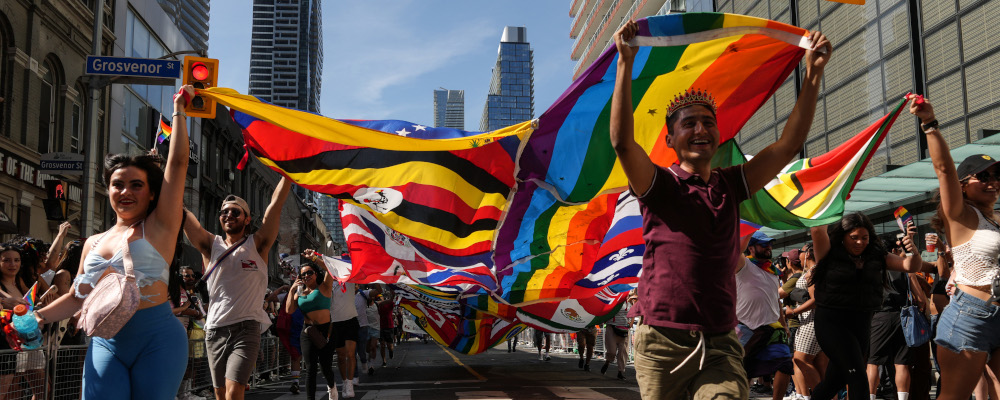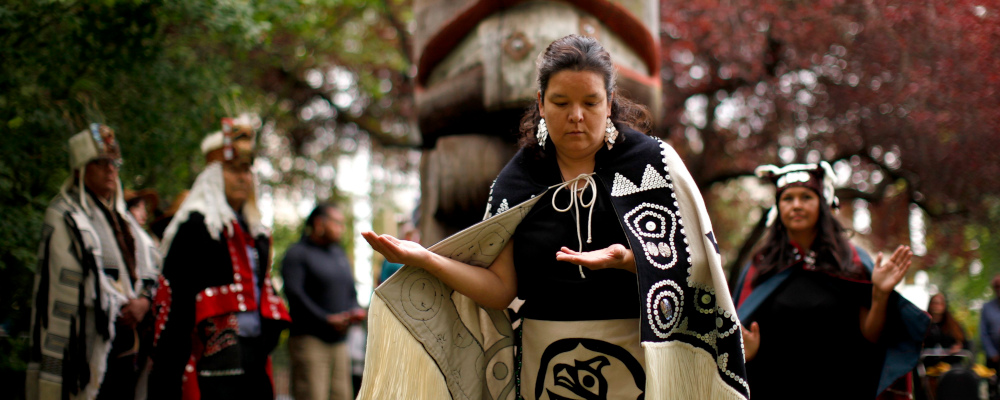It was a weird December at The Hub. Reading it, I felt like I had fallen into a time hole and landed in 1998 when I was a PhD student at the University of Ottawa and everyone was talking about Who Killed Canadian History?, a slim volume by Jack Granatstein. To some, it was a much-needed counterpunch and a necessary corrective to the social history revolution. To others, it was a depressing diatribe by a scholar who hadn’t read the scholarship he so blithely dismissed. And to yet others, it was a bit of both.
To mark the 25th anniversary of Who Killed Canadian History?, The Hub published five—yes, five—op-eds and one podcast. As Hub editor-at-large Sean Speer explained, the series was intended “to grab Canadians and Canadian policymakers by the lapels, so to speak, and say this matters: a common sense of citizenship and a common national narrative.”
A been-there-done-that Rudyard Griffiths was nonplussed. In effect, The Hub’s executive director said, you can grab all the lapels you want, but you’re wasting your time. He should know, he added, because he had cut his teeth at the Dominion Institute where, in defence of national history, he “bled a couple of quarts of blood in the history wars of the late ‘90s and early 2000s.”
The last 20 years have been more of the same, only worse, as “radical and I think dangerous ideas around decolonization” have taken root. “If you spend 20 years pushing your history into the proverbial dustbin, and then larding on top of it mounds of kind of racial and other cultural-induced guilt, and you assume that everything colonial, everything that happened, I don’t know, before 1867, is just an endless list of sins of omission and commission, I’m sorry Sean, there’s nothing to re-build. There’s no going back. Humpty Dumpty cannot be put back together again. The book isn’t Who Killed Canadian History? The book that is written today is Canadian History Is Dead.”

Speer demurred, insisting that Canadian history isn’t dead, although it is on life support. And he held out hope for a national story. “It’s not an option at this point. It’s a necessity.”
Listening to their conversation, I found myself wondering if I inhabited the same universe as Speer and Griffiths. Do they really think that a common national narrative or that a single national story is possible or even desirable? Trust me, no one wants to live in a country with a single national story.
Where does their anxiety come from? And what explains their pessimism? I don’t know. But I suspect that the taking down of, and in some instances, the toppling of statues—yet another front in the history wars—has confirmed their worst fears. And here I have some sympathy for them. I don’t like the idea of a city’s statuary being determined by vandals, even if I agree with their political motivations. But it’s an altogether different story if a statue is removed after a democratic, transparent, and deliberative process, as was the case with Halifax’s statue of Edward Cornwallis. After all, the past is reinterpreted all the time. That is the essence of history as a discipline.
I don’t want to revisit Who Killed Canadian History?. God knows enough ink has been spilled on it. Nor do I want to engage with each op-ed, although one in particular stuck in my craw. Instead, I want to invite Speer, Griffiths, et al. to conduct a simple thought experiment. I want them to start from a different place and ask themselves a different question, not who killed Canadian history, but who broadened Canadian history?
That’s not my question, by the way. It belongs to Ramsay Cook. In a recent conversation, Jack Granatstein described his former colleague as an essayist in the tradition of Frank Underhill and as an omnivorous reader: “He had a wide reading knowledge. Probably wider than anyone I knew.” In fact, it was one of his “great strengths” as a scholar. Despite their mutual respect, however, the two men didn’t see eye-to-eye on everything, including the state of Canadian history.
In 2009, Cook delivered the inaugural H. Sanford Riley Lecture in Canadian History at the University of Winnipeg, his alma mater when it was still United College. His title—“Who Broadened Canadian History?”—was an obvious riff on Who Killed Canadian History?, which in his words was “a polemical little tract.”
Canadian history, he began, is “alive and well,” not “subverted or sundered or murdered.” To make his point, Cook didn’t list book after book on this or that specialized topic (although he did some of that and, in the process, confirmed Granatstein’s observation about his reading habits). Instead, he looked at large-scale demographic, economic, and political changes across English and French Canada, as well as the rapid expansion of higher education and the growth of PhD programs. The old history—the history that he had been taught at United College and later studied at Queen’s and U of T with Arthur Lower and Donald Creighton—could neither contain nor explain these enormous, even tectonic, shifts. Something had to give, and it did in the form of history from the bottom-up written by a new generation of historians from diverse backgrounds.
History wasn’t killed. But it was broadened by, among other people, his PhD student Franca Iacovetta and her book on Italians in Toronto, Such Hardworking People (1992). “She nicely symbolizes my explanation for the emergence of a new, fuller understanding of Canadian history: a second-generation woman of Italian working-class origin, the first in her family to attend university and then graduate school, now a Professor of History at the University of Toronto. Work of this quality surely deserves better than Jack Granatstein’s slur: ‘multicultural mania.’”
To people like Griffiths who lament, in Cook’s words, that the “fragmented history of Canada, like Humpty Dumpty, can never be fitted together again,” Cook asked, “does it matter?” He didn’t think so, because history isn’t a civics lesson, much less a national consciousness raiser. It’s an intellectual discipline.
In a short essay published in 1967, Cook coined the phrase “limited identities.” There isn’t a single Canadian identity and there never has been, he argued. Instead of pining away for something that doesn’t exist, scholars should look at Canada’s limited identities, or its regional, ethnic, and class identities. The term stuck and soon took on a life of its own and came to include gender, religious, and Indigenous identities.

For his part, Granatstein never liked it. Writing in Who Killed Canadian History?, he argued that “Limited identities were almost openly anti-nationalist: it was not the nation that mattered, but ‘smaller, differentiated, provincial or regional societies’; not Canadians as a whole, but the components of the ethnic mosaic; not Canadians as a society, but Canadians in their social classes.”
Admittedly, Cook had an ambivalent relationship to “limited identities,” but not for the same reason as Granatstein. In his opinion, it wasn’t big enough to capture Canada’s complexity. Maybe “unlimited identities” would be better, he said in 1977. Or maybe, he said in 2000, it’s neither limited nor unlimited, but rather “multiple, relational, shifting, [and] contingent,” or intersectional, although he didn’t use that word. Still, that wasn’t quite right either.
In his 2009 Riley lecture, Cook took a final stab at identity, casting a wide and generous net that included an important nod to national identities. “Having been lucky once, let me try again: ‘multiple identities: national/limited/transnational.’ That conceptualization, I think, would help us better understand both the Canadian past and the world in which we live.”
If it lacks the pithiness of limited identities, it contains a lot of thinking, reading, and writing about Canada. It’s also optimistic and forward-looking and avoids the blame game inherent in trying to identify who, exactly, killed Canadian history when no one did.
On that note, and in my capacity as president of the Canadian Historical Association, I want to publicly invite Sean Speer and Rudyard Griffiths to our annual meeting in June in Montreal where they will see how Canadian history, and history in Canada, have been broadened, where they will meet scholars doing really cool things, from the social history of trans communities to the political biographies of prime ministers, where they will learn how the past is being communicated through tweeting, blogging, and podcasting, and where they can dip into any number of interesting monographs at the book display.
I’ll even pick up their conference fees.




